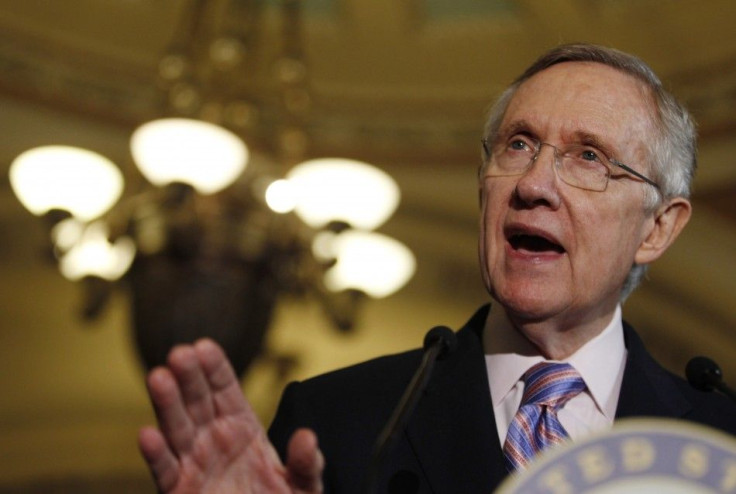U.S. Debt Deal: Reid Picks Murray, Baucus, Kerry for Decisive 'Supercommittee'

Sen. Harry Reid announced that he is appointing Sens. Patty Murray (Wash.), Max Baucus (Mont.) and John Kerry (Mass.) to a 12 member committee, mandated by the U.S. debt deal, that will be responsible for slicing more than $1 trillion out of the federal deficit.
The debt deal effectively deferred the larger part of closing the budget gap to the so-called "supercommittee," and members of the committee will wield immense power in choosing how to save $1.2 trillion. Democrat leadership wanted members who would not capitulate to Republican demands for a deal without any new revenues, just as anti-tax crusader Grover Norquist has pressured Republicans to choose members who would refuse to alter taxes.
"The number one criteria should be someone who fights for revenues and if Republicans continue to rule out revenues, then the Democrats have to play proper defense in response," a senior Democratic aide told Politico.
All three picks have substantial clout.
Murray is the chairman of the Democratic Senatorial Campaign Committee -- something that will draw scrutiny given the fact that she faces re-election in 2012, Baucus is the chairman of the Finance Committee, and Kerry is a party stalwart. None of the three senators are members of the Gang of Six, a group of three Democratic senators and three Republican senators who offered a deficit reduction framework that included both new revenues and cuts to entitlements.
Rep. Nancy Pelosi (D-CA) has yet to announce her three choices, as have Speaker of the House John Boehner (R-OH), Senate Minority Leader Mitch McConell (R-KY). The Republican leaders have telegraphed the likelihood of their picking lawmakers who are steadfastly opposed to new revenue.
"What I can pretty certainly say to the American people, the chances of any kind of tax increase passing with this, with the appointees of John Boehner and I, are going to put in there are pretty low," McConnell said on Fox News.
If the supercommittee cannot reach a deal, or if its proposal is rejected on an up or down vote in Congress at large, then deep automatic cuts to military spending and domestic programs will kick in. The automatic trigger was put in the debt deal as a mechanism for avoiding the type of protracted stalemate that prolonged the first series of debt talks.
© Copyright IBTimes 2024. All rights reserved.





















